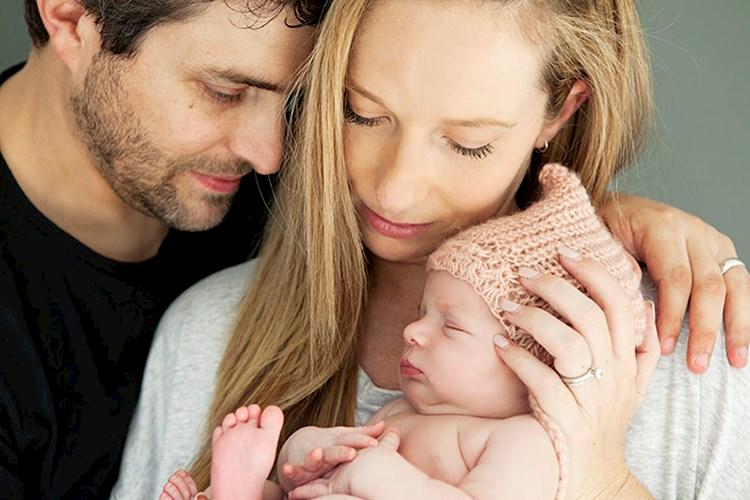Outcomes of the Mackenzie’s Mission study
Mackenzie’s Mission was a hugely successful genomic research study – and we couldn’t have done it without you: the recruiting healthcare providers, and participants.
9,107 couples from all over the nation participated in Mackenzie’s Mission and received reproductive genetic carrier screening.
About 1 in 50 couples were found to have an increased chance of having a child affected by one of the 750 conditions screened for in Mackenzie’s Mission. The information from the screening was highly valued by the participating couples, and almost all thought that this screening should be available to all future parents in the general community.
Now the study has completed, we are working with the Australian Government, and State and Territory Health Departments, with the hope of making reproductive genetic carrier screening available to any Australian couple who wants it.
Thousands of people contributed to Mackenzie’s Mission: academic institutions, clinical genetics services, laboratories, IVF providers, and hundreds of investigators, healthcare providers and coordinators. We thank them all for their efforts.
We also acknowledge the Australian Government Medical Research Future Fund (Genomics Health Futures Mission) for funding Mackenzie’s Mission.
Special thanks go to the >18,000 Australians who participated in Mackenzie’s Mission.
Your contribution will shape how healthcare is delivered, and will help future parents access information about their likelihood of having a child with a severe genetic condition.
Lastly, none of this would be possible without Rachael, Jonny, and Mackenzie Casella – the very reason Mackenzie’s Mission came to be.

Nationwide, Couple-Based Genetic Carrier Screening
Edwin Kirk, Martin Delatycki, Alison Archibald et al. The New England Journal of Medicine, 2024.
Design and implementation of Mackenzie’s Mission – The Australian Reproductive Genetic Carrier Screening Project
Alison Archibald, Belinda McClaren, Jade Caruana et al. Journal of Personalized Medicine, 2022.
How should severity be understood in the context of reproductive genetic carrier screening?
Lisa Dive, Alison Archibald, Lucinda Freeman et al. Bioethics, 2023.
Ethically robust reproductive genetic carrier screening needs to measure outcomes that matter to patients
Lisa Dive & Ainsley Newson. European Journal of Human Genetics, 2022.
Ethical aspects of the changing landscape for spinal muscular atrophy management in Australia
Ainsley Newson, Lisa Dive, Julie Cini et al. Australian Journal of General Practice, 2022.
Taking seriousness seriously in genomic health
Ainsley Newson & Lisa Dive. European Journal of Human Genetics, 2021.
Ethical considerations in gene selection for reproductive carrier screening
Lisa Dive, Alison Archibald & Ainsley Newson. Human Genetics, 2021.
Reproductive carrier screening: responding to the eugenics critique
Lisa Dive & Ainsley Newson. Journal of Medical Ethics, 2021.
Ethics of reproductive genetic carrier screening: From the clinic to the population
Lisa Dive & Ainsley Newson. Public Health Ethics, 2021.
Ethical issues in reproductive genetic carrier screening
Lisa Dive & Ainsley Newson. Medical Journal of Australia, 2020.
Cost-effectiveness analysis of gene-based therapies for patients with spinal muscular atrophy type I in Australia
Tianjiao Wang, Paul Scuffham, Joshua Byrnes et al. Journal of Neurology, 2022.
Economic evaluation of reproductive carrier screening for recessive genetic conditions: a systematic review
Tianjiao Wang, Mina Bahrampour, Joshua Byrnes et al. Expert Review of Pharmacoeconomics & Outcomes Research, 2021.
Health practitioners’ perceptions of the barriers and enablers to the implementation of reproductive genetic carrier screening: A systematic review
Stephanie Best, Janet Long, Tahlia Theodorou et al. Prenatal Diagnosis, 2021.
The relationship between beta-ureidopropionase deficiency due to UPB1 variants and human phenotypes is uncertain
Sarah Righetti, Richard Allcock, Joy Yaplito-Lee et al. Molecular Genetics and Metabolism, 2022.
The views of people with a lived experience of deafness and the general public regarding genetic testing for deafness in the reproductive setting: A systematic review
Lucinda Freeman, Sarah Righetti, Martin Delatycki et al. Genetics in Medicine, 2022.
Correspondence on “Screening for autosomal recessive and X-linked conditions during pregnancy and preconception: a practice resource of the American College of Medical Genetics and Genomics (ACMG)” by Gregg et al
Sarah Righetti, Lisa Dive, Alison Archibald et al. Genetics in Medicine, 2022.
Gene selection for the Australian Reproductive Genetic Carrier Screening Project (“Mackenzie’s Mission”)
Edwin Kirk, Royston Ong, Kirsten Boggs et al. European Journal of Human Genetics, 2020.
The views of people with a lived experience of deafness and the general public regarding genetic testing for deafness in the reproductive setting: A systematic review
Lucinda Freeman, Sarah Righetti, Martin Delatycki et al. Genetics in Medicine, 2022.
Development and use of the Australian reproductive genetic carrier screening decision aid
Emily King, Jane Halliday, Alison Archibald et al. European Journal of Human Genetics, 2021.
The relationship between beta-ureidopropionase deficiency due to UPB1 variants and human phenotypes is uncertain
Sarah Righetti, Richard Allcock, Joy Yaplito-Lee et al. Molecular Genetics and Metabolism, 2022.
